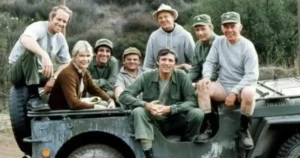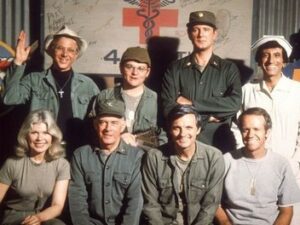The television series MASH, which aired from 1972 to 1983, is widely regarded as one of the most influential shows in television history. Set during the Korean War, it masterfully combined humor and drama to create a unique lens through which audiences could view the complexities of war. Its impact on public perception of military conflict is profound and multifaceted. Here are four significant ways MASH changed how we think about war.
1. Humanizing the Soldier Experience
One of the most significant contributions of MASH was its ability to humanize soldiers. The characters, led by the irreverent Hawkeye Pierce and the compassionate BJ Hunnicutt, are depicted not just as warriors, but as individuals with fears, hopes, and dreams. The show offers a candid portrayal of their struggles—both physical and emotional—while serving in a war zone. By focusing on their personal stories, MASH allowed viewers to empathize with the realities faced by soldiers, fostering a deeper understanding of their experiences and sacrifices.

2. Addressing the Absurdity of War
MAS*H skillfully used humor to highlight the absurdities of war. Through witty dialogue, slapstick comedy, and bizarre situations, the show exposed the often irrational and chaotic nature of military life. For instance, the antics of characters like Frank Burns and the mismanagement of resources illustrated how bureaucratic incompetence can complicate life on the front lines. This comedic approach not only entertained but also provoked critical thought about the senselessness of war, encouraging viewers to question the glorification of military conflict.
3. Promoting Peace and Humanity
Central to MAS*H’s narrative is a strong anti-war message that resonates throughout the series. The show emphasizes the importance of compassion, friendship, and humanity in the face of violence. The characters frequently grapple with the moral implications of their work, reminding audiences that behind every soldier is a person who wants peace. Episodes that focus on the care of injured soldiers, regardless of their side in the conflict, illustrate the universal need for empathy that transcends political boundaries. This poignant message contributed to a broader discourse on the value of peace and reconciliation.

4. Challenging Gender Roles and Diversity
While set in the 1950s, MASH broke new ground by presenting strong female characters who defied traditional gender roles. Characters like Margaret “Hot Lips” Houlihan and Nurse Kellye are depicted as competent, assertive professionals who significantly contribute to the war effort. Their presence on the show challenged societal norms and opened doors for discussions about gender equality in the military and beyond. Furthermore, MASH introduced diverse characters, showcasing the contributions of individuals from various backgrounds, thus promoting inclusivity and representation in a field often dominated by stereotypical portrayals.
In conclusion, MAS*H remains a landmark series that transformed public perceptions of war through its innovative storytelling and diverse character portrayals. By humanizing soldiers, highlighting the absurdities of conflict, promoting peace, and challenging societal norms, the show has left an indelible mark on television and society. Its legacy continues to resonate, reminding us of the complexities of war and the enduring need for compassion and understanding.